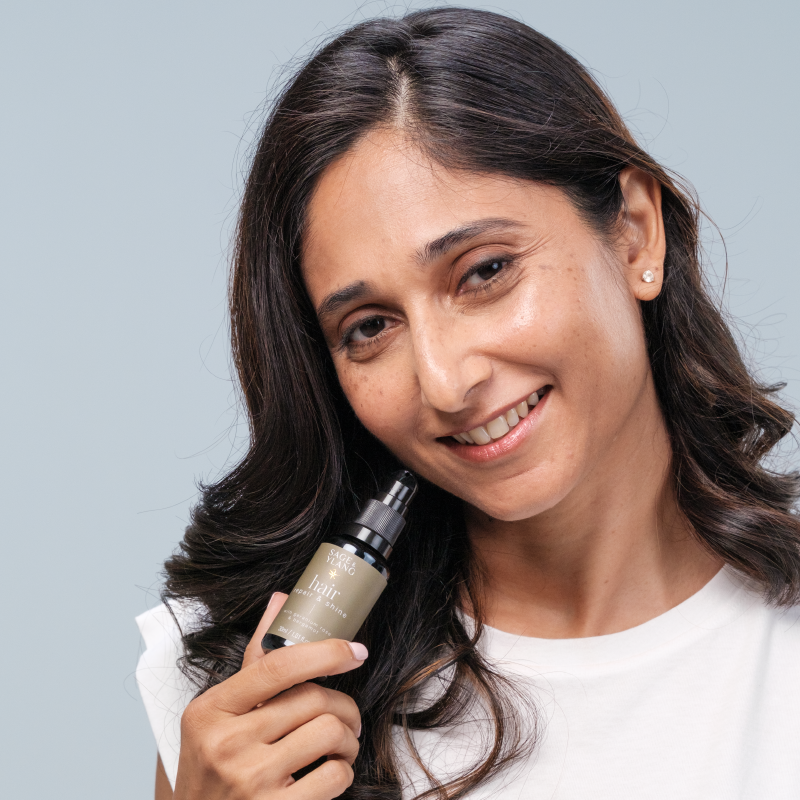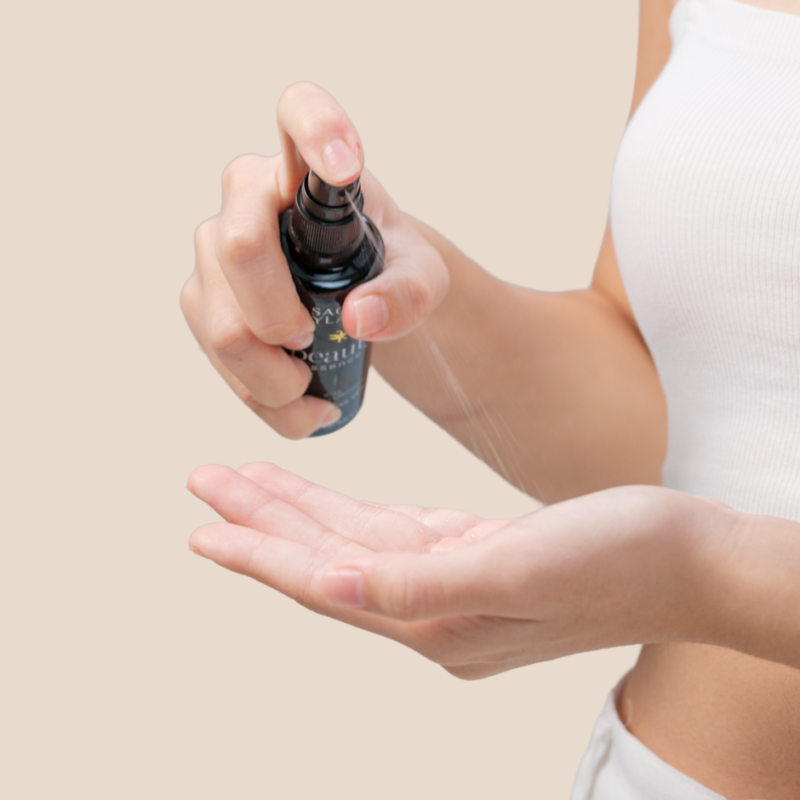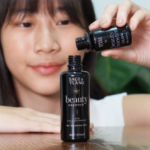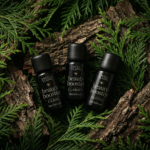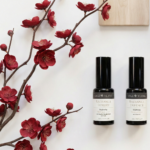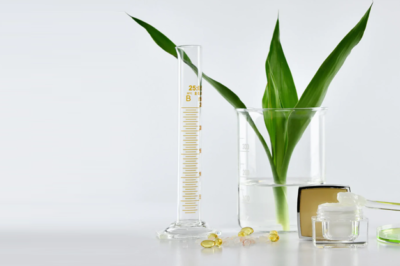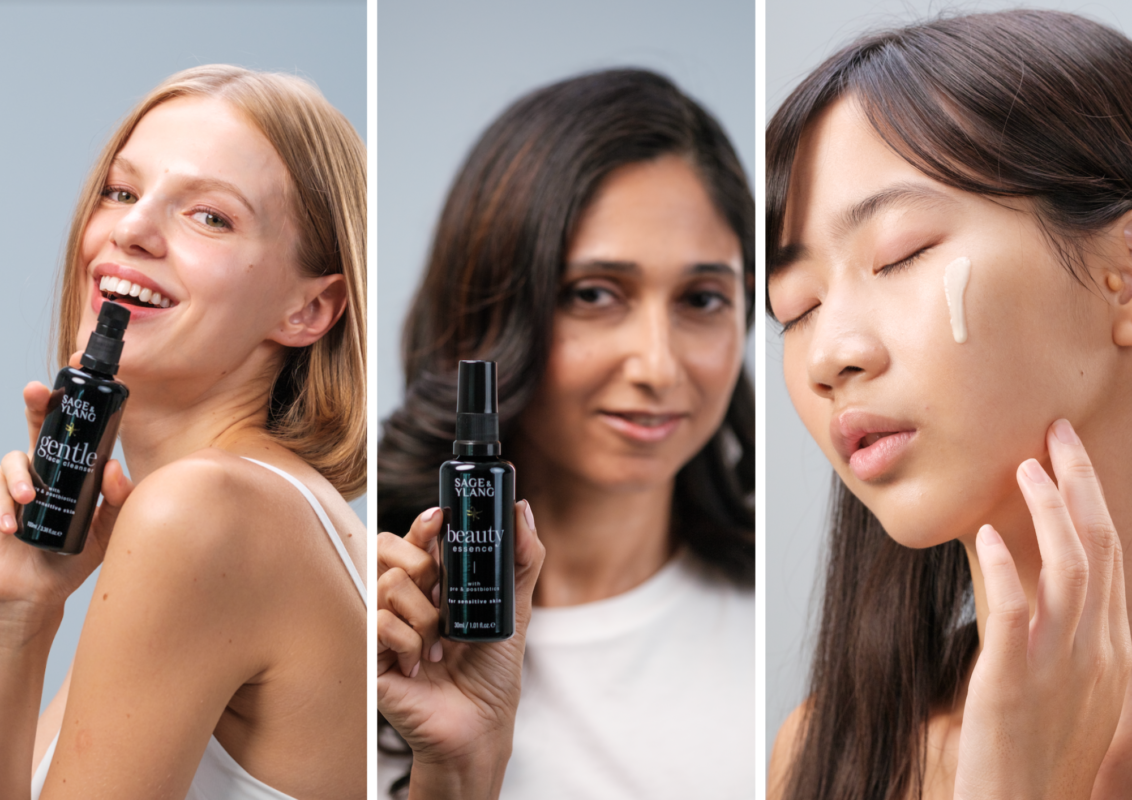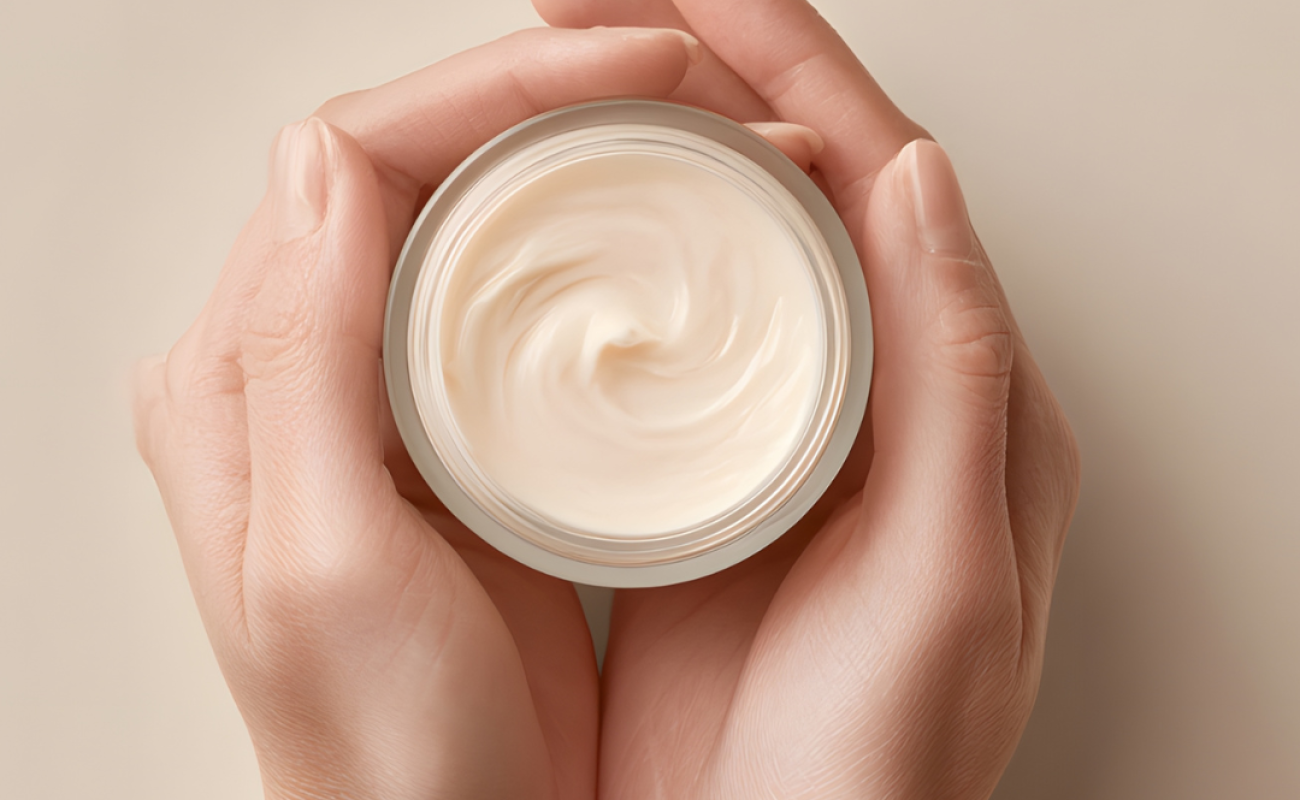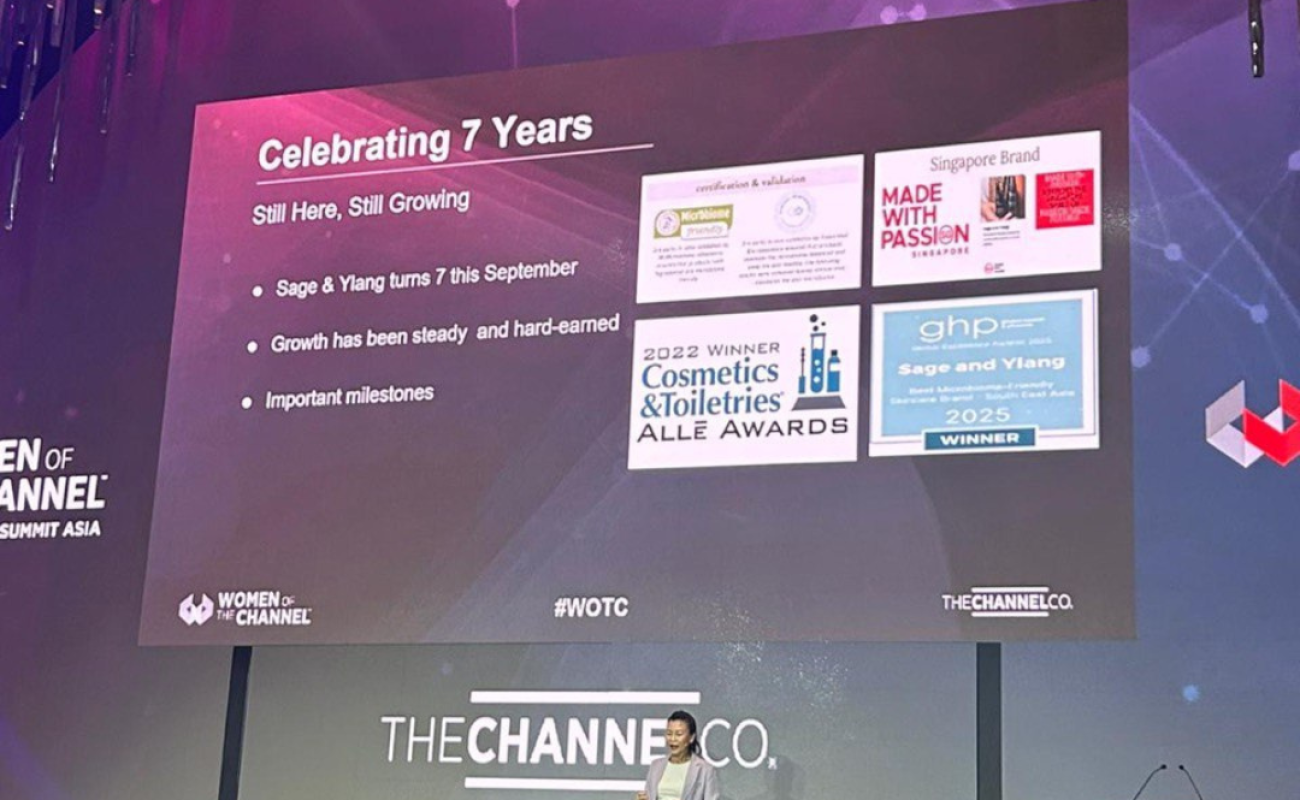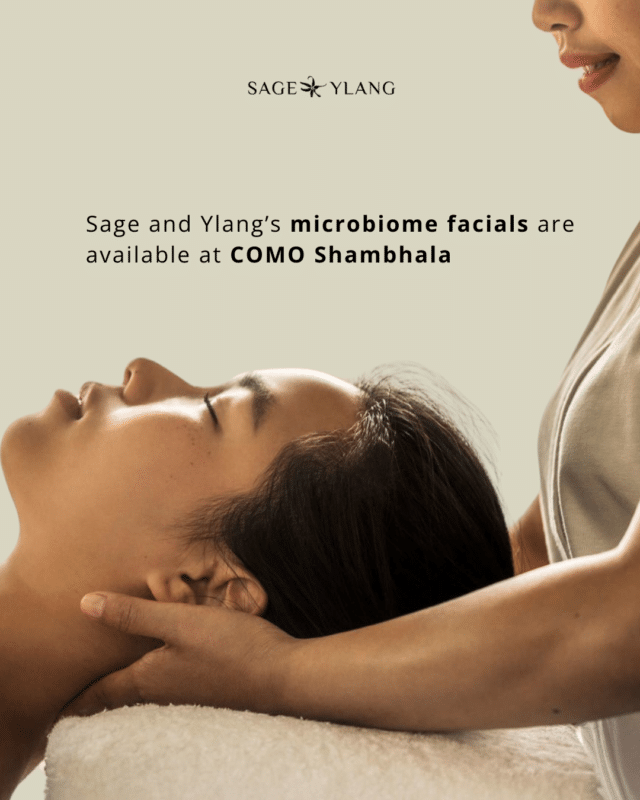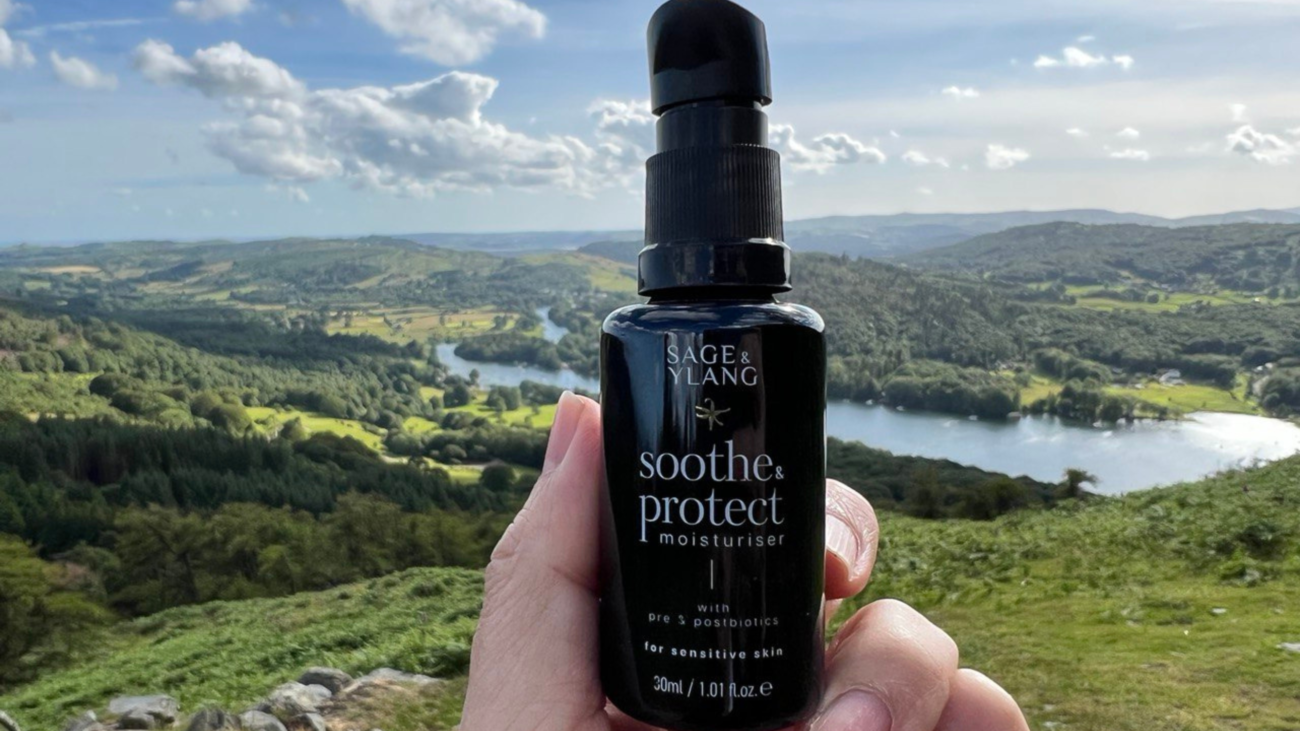What is Sensitive Skin and How Do You Know If You Have It?
Sensitive skin isn’t a trend, it’s a real skin type that deserves thoughtful care. It tends to react faster and more intensely to environmental changes, stress, or harsh ingredients. You might experience:
- Redness or blotchy patches
- Burning or tingling after applying products
- Tightness or itchiness
- Unexpected dryness or breakouts
Sensitive skin is often the result of a compromised skin barrier. The key to relief isn’t stronger products, it’s smarter, gentler formulations that strengthen your skin’s natural defenses.
What is a Good Skincare Routine for Sensitive Skin?
A good skincare routine for sensitive skin should be minimalist, soothing, and barrier-supportive. When your skin is prone to redness, dryness, or flare-ups, less is more. The goal is to gently cleanse, deeply hydrate, and protect the skin while respecting its delicate microbiome.
That’s where Sage & Ylang’s BiomeCare Series shines. This thoughtfully formulated 3-step routine is designed specifically for sensitive and reactive skin types. Each product is microbiome-safe, fragrance-free, and powered by plant-based, skin barrier friendly ingredients. Together, they work in harmony to calm inflammation, restore moisture balance, and strengthen your skin’s natural defenses, without causing irritation or clogging pores.
Whether you’re dealing with chronic sensitivity, post-treatment skin, or simply want a gentler routine, BiomeCare is a smart, skin-first solution you can trust every day.
Start With a Gentle, Balancing Cleanse
Sensitive skin needs to be cleansed, but never stripped. The wrong cleanser can worsen dryness, redness, and irritation. That’s why choosing a non-foaming, pH-balanced formula is essential.
🔹 Product Recommendation: Gentle Face Cleanser
- Suitable for all skin types especially those with sensitive and reactive skin
- Gentle low-foaming cleanser
- Supports the skin microbiome while effectively removing dirt and buildup
- Ph-balanced 5.5 to protect the skin delicate layer
- 70.5% Organic Ingredients, 100% Vegan, 100% Skin microbiome friendly
Strengthen Your Skin Barrier With a Hydrating Essence
Essences are lightweight, fast-absorbing, and deliver deep hydration and nourishment, especially important for sensitive skin that struggles with moisture retention and inflammation.
🔹 Product Recommendation: Beauty Essence
- Formulated with prebiotics and postbiotics, herbal blend, and organic aloe vera
- Boosts hydration, soothes irritation, and supports healthy skin barrier recovery
- Preps your skin for moisturizer while delivering calming botanical actives
- Perfect for those experiencing redness, dryness, or barrier sensitivity
Seal in Moisture With a Soothing, Microbiome-Safe Moisturizer
Sensitive skin thrives when its barrier is supported. A gentle moisturizer not only hydrates but also acts as a shield from environmental stressors and allergens.
🔹 Product Recommendation: Soothe and Protect Moisturiser
- Lightweight yet rich in prebiotics and postbiotics, squalane, and vitamin E
- Blue lights protection from digital devices
- Calms inflammation, protects against moisture loss, and improves overall skin resilience
- Fragrance-free, vegan, and safe for even the most reactive skin
- Delays premature skin ageing
Best Skincare Ingredients for Sensitive Skin: What to Look For
If you have sensitive skin, choosing the right ingredients is essential. You’ll want to avoid harsh actives, synthetic fragrances, and alcohols that can strip or irritate your skin barrier. Instead, look for hydrating, calming, and barrier-repairing ingredients that support your skin’s natural microbiome and help maintain a healthy moisture balance. Why These Ingredients are Great for Sensitive Skin:
- Organic Aloe Vera: Known for its soothing, anti-inflammatory properties, it instantly calms redness and hydrates without clogging pores.
- Postbiotics: A microbiome-friendly ingredient that promotes skin resilience, strengthens the barrier, and reduces sensitivity over time.
- Acmella Flower Extract: A natural active that helps reduce the appearance of fine lines while calming the skin, making it perfect for those with aging and sensitive skin.
- Squalane: Mimics skin’s natural oils for non-comedogenic moisture
- Hydrolyzed Pea Protein: A nutrient-rich protein that helps fortify the skin, improve elasticity, and defend against environmental stressors, all while being gentle enough for sensitive complexions.
Sage & Ylang’s BiomeCare Series is thoughtfully formulated with gentle, science-backed actives that cater to delicate and reactive skin. By using skincare that features these nourishing ingredients, you’re giving your skin the tools it needs to heal, strengthen, and glow, without irritation or compromise.
Ingredients to Avoid If You Have Sensitive Skin
If you have sensitive skin, understanding what not to use is just as critical as choosing the right products. Many skincare flare-ups including redness, irritation, breakouts, and dryness are often triggered by common ingredients that disrupt the skin’s barrier or provoke inflammation. Here are the top ingredients to avoid in skincare for sensitive skin:
- Artificial Fragrances and Dyes: Synthetic fragrances are one of the leading causes of contact dermatitis. They can cause itching, redness, or stinging, especially on already compromised skin. Always look for fragrance-free or naturally unscented labels.
- Alcohol-Based Products: Ingredients like denatured alcohol or SD alcohol may feel light or fast-drying, but they often strip the skin of its natural oils, leading to dryness and sensitivity over time. Sensitive skin needs hydration, not dehydration.
- Harsh Exfoliants: While exfoliation is important, avoid physical scrubs with rough granules or high concentrations of alpha hydroxy acids (AHAs) like glycolic acid. These can cause microtears or trigger inflammation. Opt for gentle, enzyme-based exfoliants or low-dose chemical options, if needed.
- Essential Oils in High Doses: While some essential oils offer benefits, high concentrations — especially of oils like peppermint, citrus, or tea tree — can be too strong for sensitive skin, leading to burning or allergic reactions.
- Sulfates (like SLS): Found in foaming cleansers and shampoos, sodium lauryl sulfate (SLS) and its cousins can strip the skin’s protective oils, disrupting the barrier and causing dryness and irritation.
- Harsh Synthetic Preservatives: Preservatives like parabens and formaldehyde-releasing agents may cause allergic reactions or irritation in sensitive individuals. Look for brands that use gentle, natural preservation systems instead.
Always read ingredient labels, patch-test new products, and keep your routine simple to avoid unnecessary stress on your skin.
Lifestyle Tips for Calming Sensitive Skin
When it comes to sensitive skin, it’s not just about what you apply topically, your daily habits and environment play a huge role in how your skin feels and functions. A truly effective sensitive skin routine goes beyond your skincare shelf. To support your skin from the inside out, consider these essential lifestyle tips for calming and managing sensitive skin:
- Always Patch Test New Products: Whether it’s skincare, makeup, or even laundry detergent, testing a small amount on your inner arm or behind your ear can help you avoid unexpected flare-ups or allergic reactions.
- Use Lukewarm Water Instead of Hot: Hot water can strip your skin’s natural oils and worsen dryness, redness, or sensitivity. Gentle cleansing with lukewarm water helps preserve the skin barrier and reduces inflammation.
- Keep Your Environment Humidified: Especially during dry seasons or in air-conditioned spaces, low humidity can cause your skin to become flaky and irritated. A humidifier helps maintain moisture in the air, keeping your skin hydrated and less reactive.
- Stay Hydrated & Prioritize Sleep: Drinking enough water and getting at least 7–8 hours of sleep a night are vital for skin health. Rest allows your body to repair and rebalance, while proper hydration keeps your skin plump, resilient, and less prone to irritation.
- Manage Stress With Mindfulness or Gentle Movement: Chronic stress is directly linked to skin sensitivity, often triggering conditions like eczema or rosacea. Incorporating low-intensity activities such as walking, yoga, deep breathing, or journaling can calm both your mind and your skin.
Frequently Asked Questions (FAQ) About Sensitive Skin
Q: What causes sensitive skin?
Sensitive skin can be caused by genetics, environmental triggers (pollution, weather), over-exfoliation, or a damaged moisture barrier. A stripped barrier means irritants can enter the skin more easily.
Q: Can I still use active ingredients?
Yes in moderation. Stick to barrier-friendly actives like postbiotics, aloe vera, and organic extract. Avoid high percentages of acids or retinol unless guided by a dermatologist.
Q: Is Sage & Ylang good for sensitive skin?
Absolutely. Sage & Ylang’s BiomeCare Series is crafted specifically for sensitive and reactive skin types. Every product is:
- Microbiome-safe
- Dermatologically tested
- Free from synthetic fragrance and essential oils
- 100% plant origin with a gentle formulation philosophy
Sage & Ylang’s BiomeCare Series is the Best Skincare for Sensitive Skin in 2025
If you’ve been searching for skincare that truly respects your sensitive skin, Sage & Ylang’s BiomeCare Series is your answer. These three essentials: cleanser, essence, and moisturizer are designed to work in harmony with your skin, not against it. Backed by gentle botanicals and skin barrier science, they deliver real results without irritation.
Discover the full BiomeCare Series and reclaim your skin’s calm and balance at Sage & Ylang.

